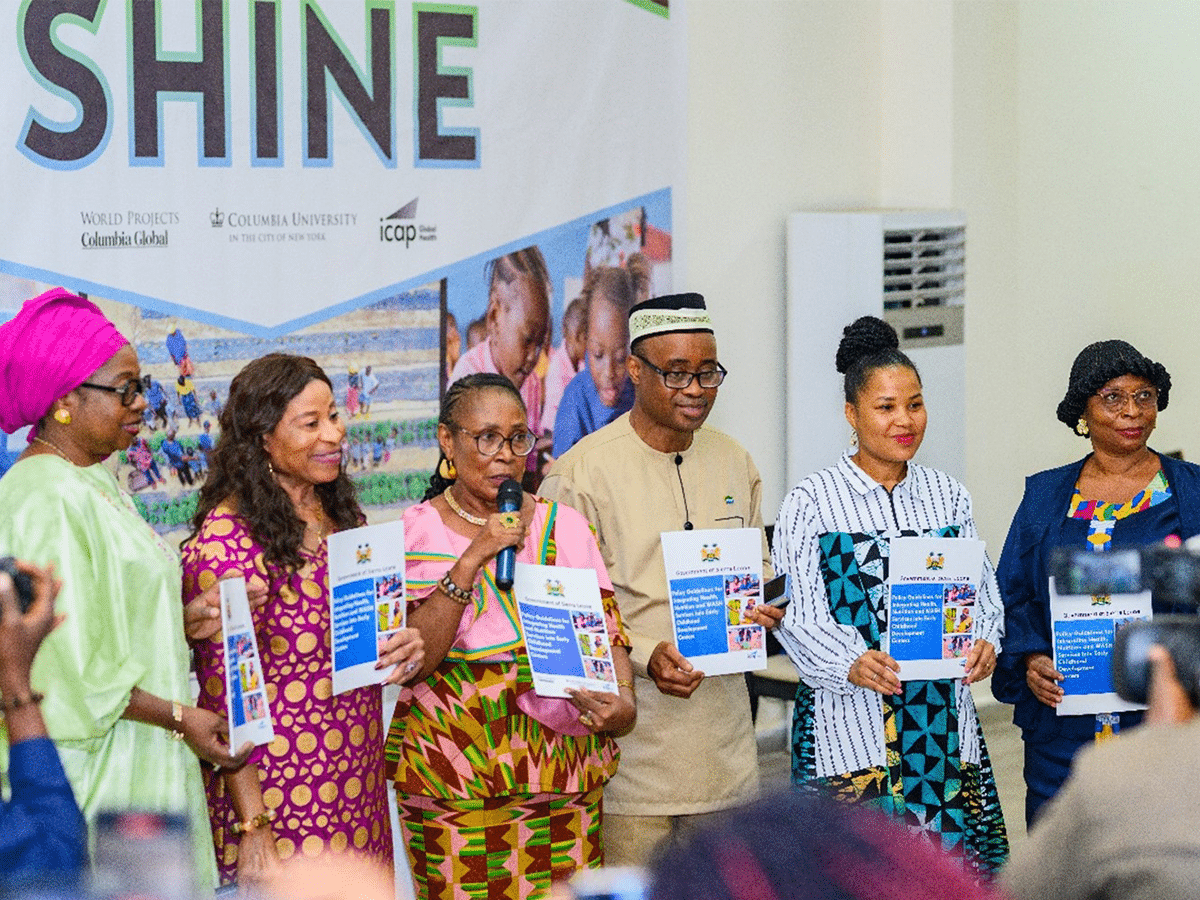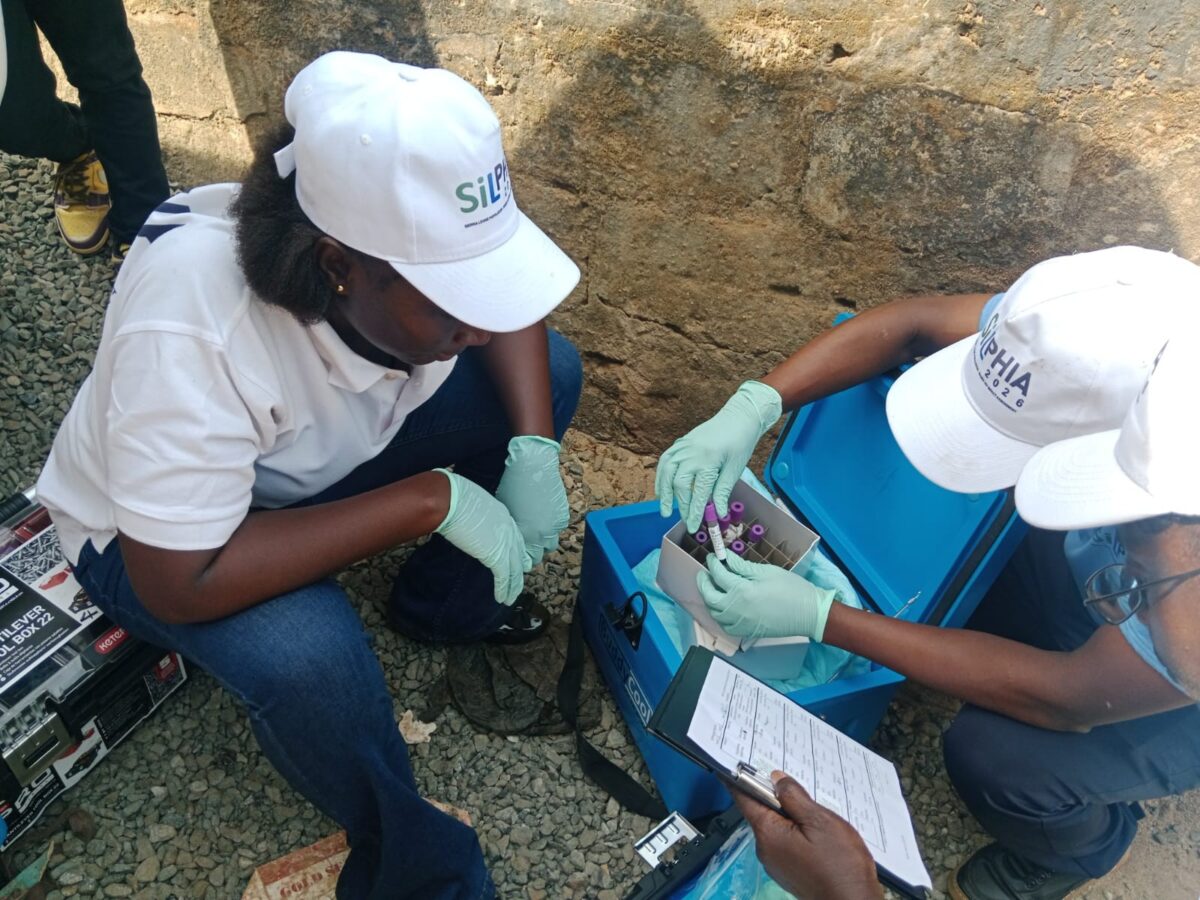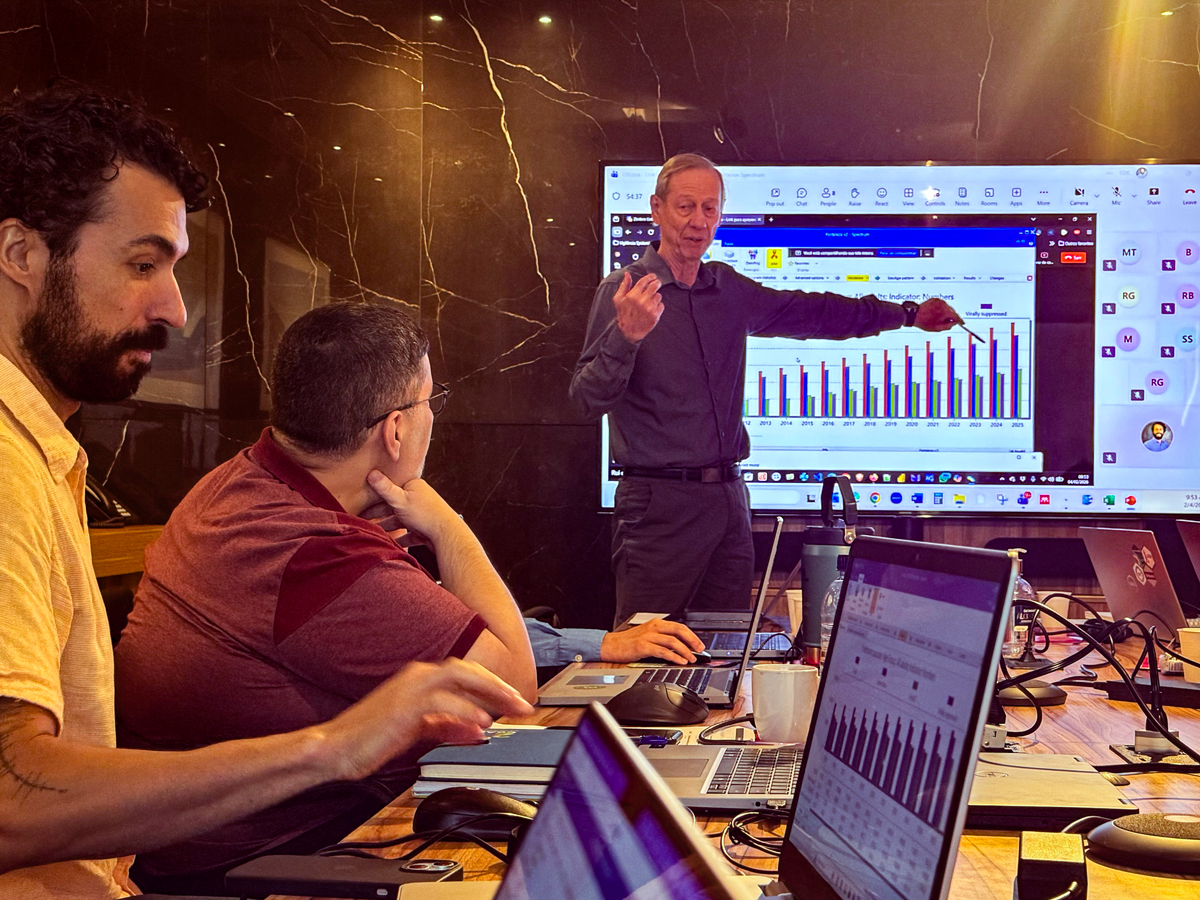On Friday, July 12, 2024, ICAP in Sierra Leone – in collaboration with Sierra Leone’s Ministry of Basic Senior and Secondary Education (MBSSE), the Ministry of Health (MOH), and the Ministry of Water Resources and Sanitation – hosted a meeting to launch newly developed policy guidelines for integrating health, nutrition, and water, sanitation, and hygiene services into preschool centers in the country. The guidelines contain key objectives, expected outcomes, and strategies for integrating health services into early childhood development (ECD) centers. The launch follows the conclusion of the 18-month-long Supporting Healthy Interaction, Nurturing, and Enrichment for Preschool Children in Sierra Leone (Project SHINE!), an ICAP-led initiative funded by Columbia World Projects at Columbia University.
From January 2023 to June 2024, Project SHINE! aimed to demonstrate the acceptability and feasibility of a wraparound health services solution for preschool children and their families and to develop a blueprint for implementing this solution at scale. Our Lourdes Preschool in the Sierra Leone city of Port Loko was the project beneficiary.
“Given the magnitude of health issues such as early mortality, stunting, malnutrition, and common infectious diseases, including malaria, diarrhea, and pneumonia, among children under five years in Sierra Leone, our intervention was geared at creating child-centered health care services with linkage and support from health workers, caregivers and family, the community, and teachers to improve health outcomes,” said Mame Awa Toure, MD, MSc, ICAP’s country director in Sierra Leone.
The project was an opportunity for ICAP to work closely with the Ministry of Health and partners to support the Sierra Leone government’s free early childhood development initiative and to fill the gaps in child health monitoring services at the end of routine early childhood vaccination (0-15 months) and the start of primary school and to create concrete guidelines to inform national scale-up of the project.
Approximately 80 participants attended the dissemination meeting, including MOH, MBSSE, and Ministry of Water Resources and Sanitation officials. Officials from the district health management team and MBSSE across the 16 districts of Sierra Leone also participated in the event. Other development partners in attendance included Plan International, Right to Play, World Vision, Ecobank, Cotton Tree Foundation Sierra Leone, Milton Margai Technical University, Our Lady of Lourdes Preschool management and a cross-section of the pupils, and Port Loko community members and parents.
In presenting the results of Project SHINE!, the ICAP team highlighted the project’s implementation process and reach, as well as testimonials from community members and project beneficiaries, and plans for sustaining lessons learned from the project.
Melody Martin, ECD director with the MBSSE, presented the newly developed policy guidelines together with Emily Gogra, deputy minister, MBSSE, who expressed her gratitude to ICAP for addressing such a critical need in Sierra Leone’s health and education system. “By implementing these policy guidelines, we are building the future of Sierra Leone by supporting our future nation builders,” Gorga said in her remarks
Project stakeholders expect to roll out the policy guidelines nationwide across ECD centers in the country to address the health needs of Sierra Leone’s children.
“Addressing issues like water access and providing children with education and care for four to five hours a day can significantly impact their well-being and prevent severe illness,” said Toure. “This intervention isn’t just about immediate actions but ensuring future sustainability.”
-
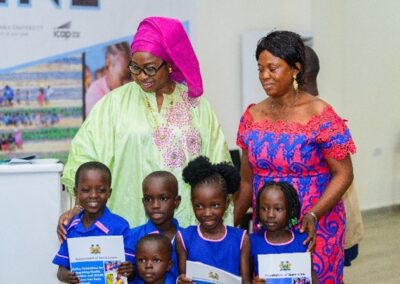
Dr. Mame Awa Toure - Country Director for ICAP in Sierra Leone, and Mariam Kamara - Headteacher of Our Lady of Lourdes Preschool and some pupils
-
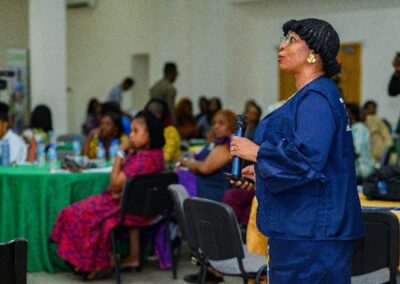
Melody Martin - Assistant Director of MBSSE presenting on policy guidelines
-
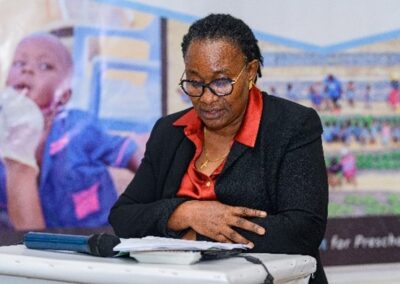
Dr. Sao-Kpato Hannah Isatta Macarthy - Minister of Water Resources and Sanitation, giving her remarks during the meeting
-
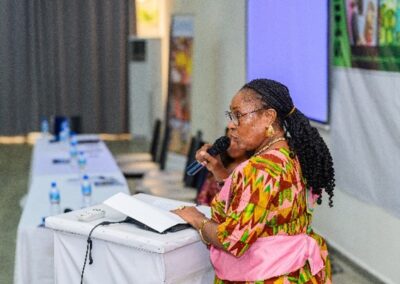
Emily Gogra – Deputy Minister of MBSSE giving a keynote speech during the dissemination meeting
-
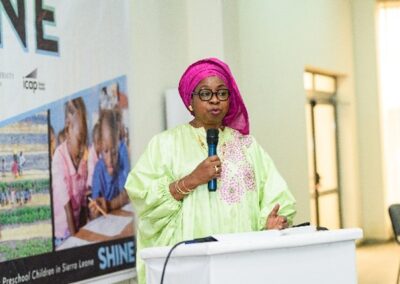
Dr. Toure giving remarks during the dissemination meeting
-
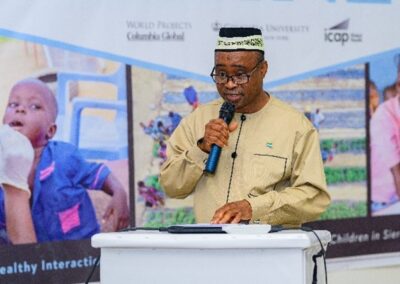
Prof. Charles Senesie - Deputy Minister of Health giving his remarks during the dissemination meeting
-
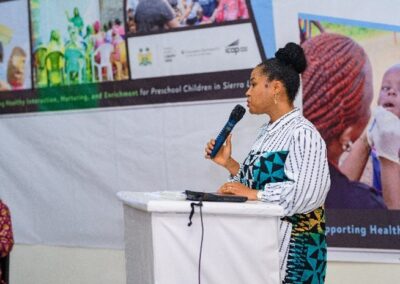
Dr. Lynda Grantt – Manager of MoH Child Health Program giving opening remarks
-
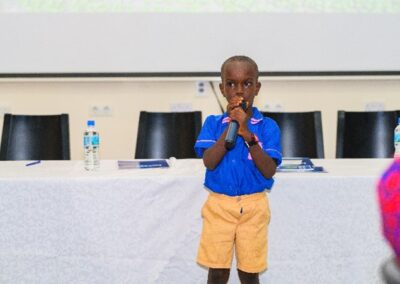
Gibrila Sesay, a pupil from Our Lady of Lourdes talks about the benefits of the school garden
About ICAP
A major global health organization that has been improving public health in countries around the world for two decades, ICAP works to transform the health of populations through innovation, science, and global collaboration. Based at Columbia Mailman School of Public Health, ICAP has projects in more than 40 countries, working side-by-side with ministries of health and local governmental, non-governmental, academic, and community partners to confront some of the world’s greatest health challenges. Through evidence-informed programs, meaningful research, tailored technical assistance, effective training and education programs, and rigorous surveillance to measure and evaluate the impact of public health interventions, ICAP aims to realize a global vision of healthy people, empowered communities, and thriving societies. Online at icap.columbia.edu


